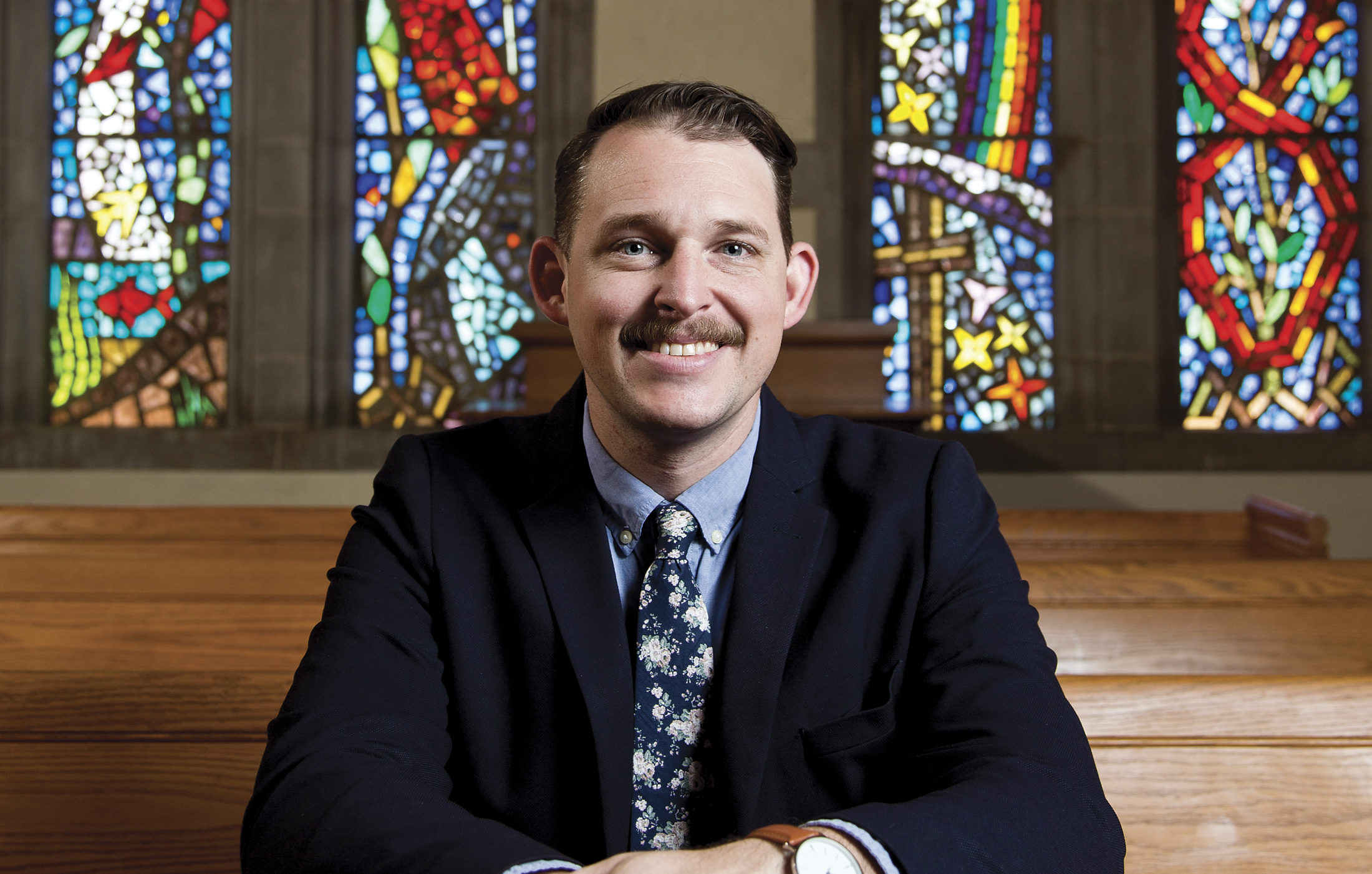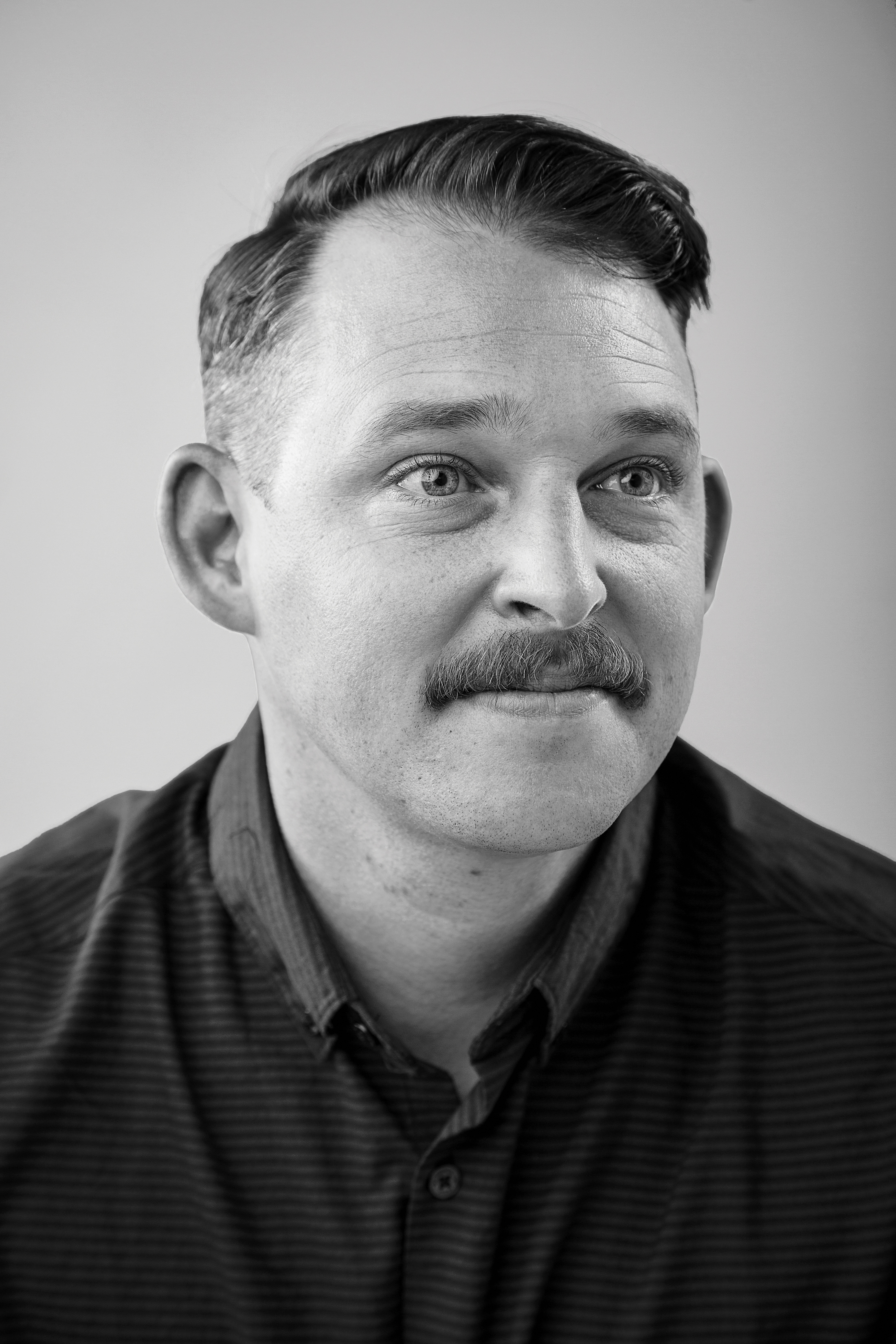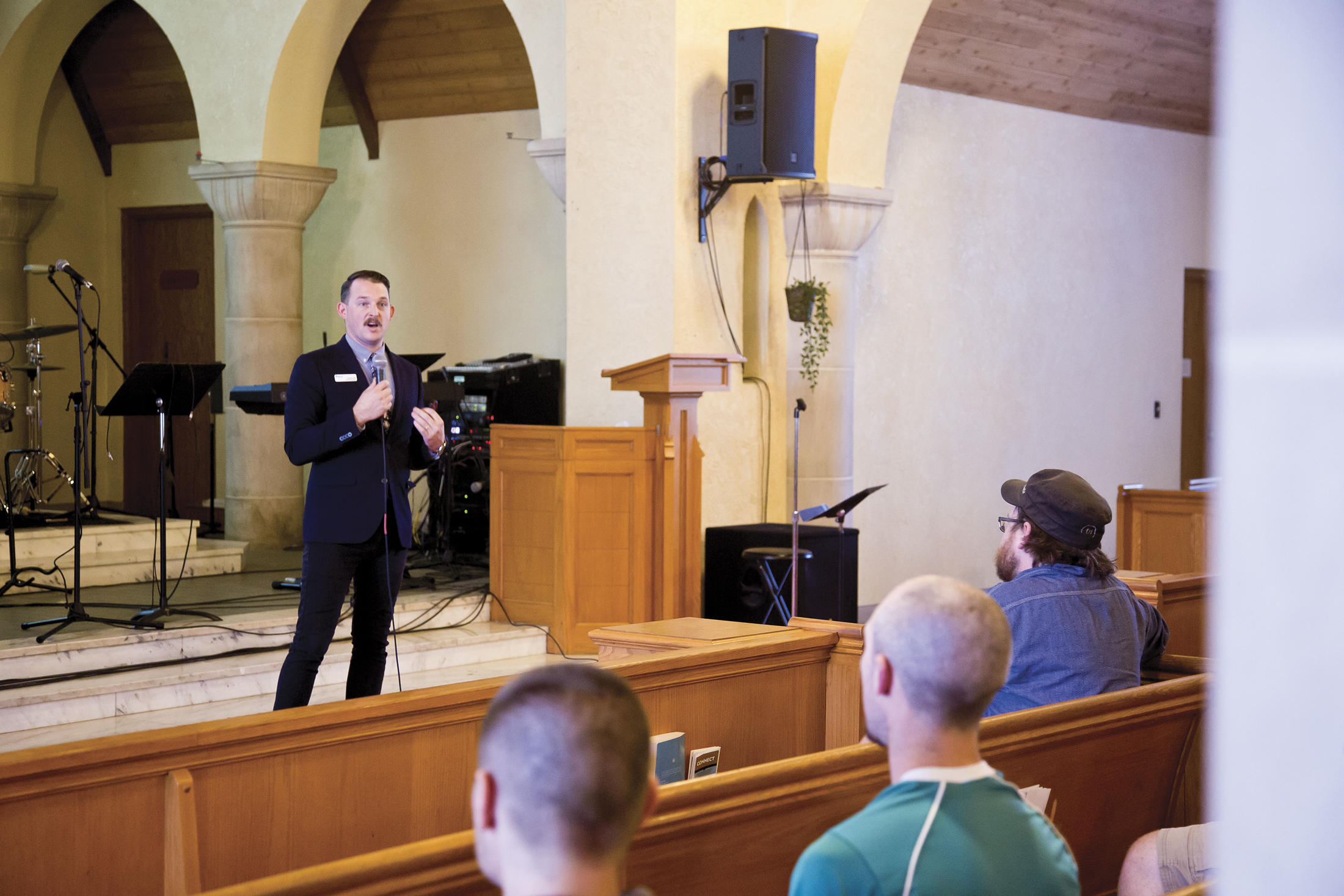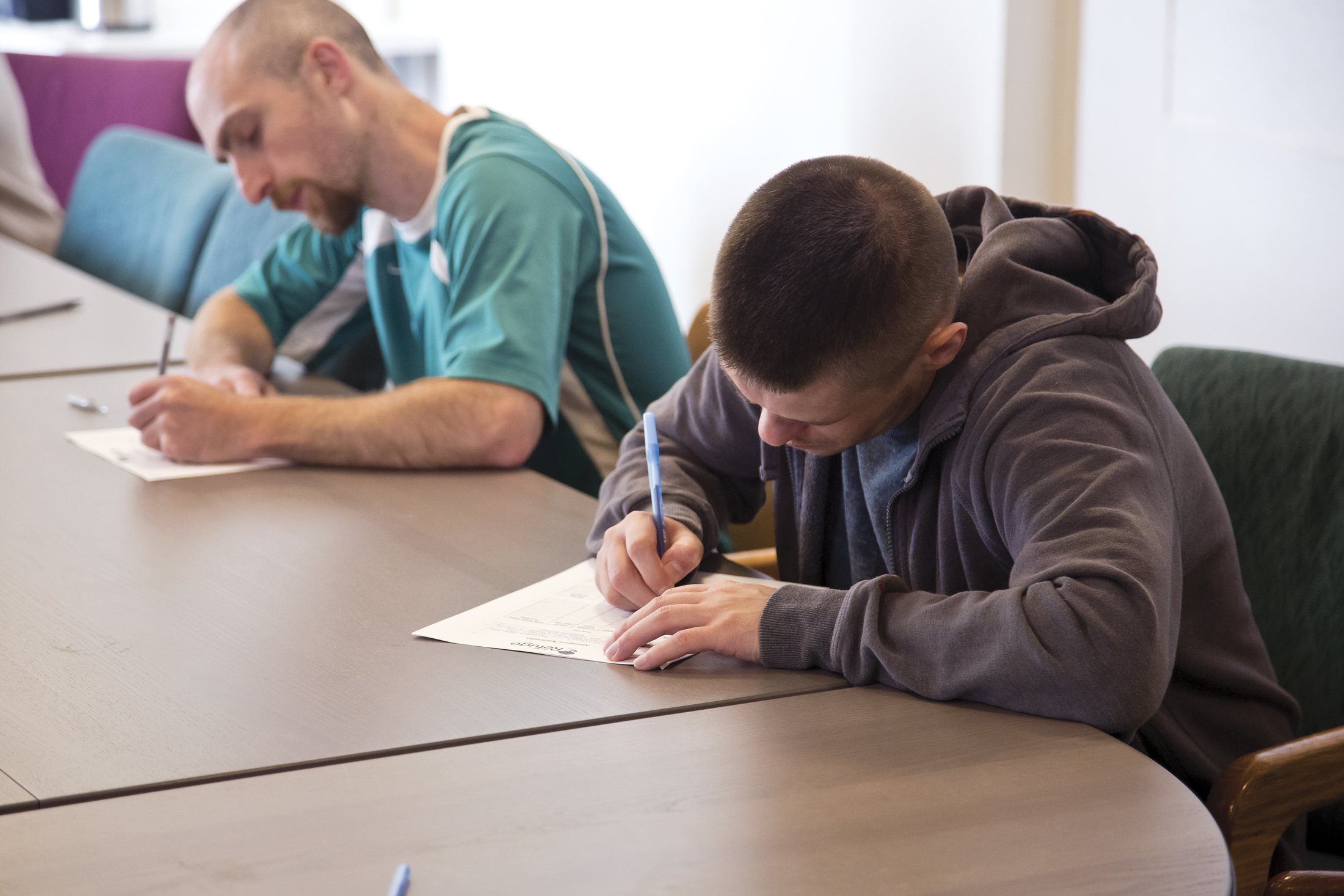
Austin Hill
For Austin Hill, the hardest part about working with people addicted to drugs is the realization that he can’t save them all.
Since 2017, Hill has been Columbus director of The Refuge, a faith-based ministry that provides a free, intensive 13-month rehabilitation program. He oversees the final phases of the men’s program, which involves shepherding newly sober participants back to being productive members of society.
Not everyone makes it.
“Since I started, there’s rarely a month that goes by that I don’t know someone who dies, that’s just how it is,” Hill, 33, said recently from his office at Veritas West church on the Hilltop, which supports the ministry.
He deals with it “by crying a lot—I am not a ‘push it down’ person,” he said. But he also reminds himself of the many success stories.
“When I have exceptionally hard days, I go through those who have completed the program and who are doing really well,” Hill said. “Guys who have a healthy relationship with their kids, who have jobs, who are doing what they need to do.”
The Refuge was founded 20 years ago by Tom and Johnna Thompson. It began as a residential program on a Vinton County farm.
It has since grown into a four-phase program. For men, the first two phases still are on a farm, now in Lancaster. For the final two phases, which Hill oversees, the men live in an apartment building on the Hilltop.
There, recent alums of the program serve as coordinators, living with the approximately 40 participants. Hill affectionately calls it, “a Christian commune.”
Hill has no background working with addicts and no formal training or college degree. What he has in abundance, though, is a seemingly bottomless well of compassion, according to those who work with him.

“What struck me with him was his deep care for people, and that’s what mattered to me,” said Wes Thompson, a son of The Refuge founders and pastor at Veritas West, who hired Hill two years ago. “He’s a very selfless person, and that’s ultimately what we wanted more than anything.”
Hill likes to say he was hired because he’s “the right kind of crazy,” which is his explanation for how a rural Union County kid ended up living on the South Side, working with first the homeless and now with drug addicts.
He grew up outside of Marysville in a strongly Christian home. Along with his parents, Mack and Tina, and two brothers, Hill went to church three days a week.
He graduated from Fairbanks High School in 2004, a year before his high school sweetheart, Chelsey. They were married in June 2005, and had their first of three daughters, Mabry, in 2006. She is now 13, and the couple have two other children, Charlie, 10, and Pepper, 7.
Hill had been attending Ohio State, but he left school to support his family, first as a maintenance man in an apartment complex and then by owning a funnel-cake stand. Chelsey’s family was in the concession business.
Austin Hill
Age: 33
Neighborhood: South Side
Inspiration:
He is inspired every time he is given the opportunity to come alongside individuals who were broken, and to be a part of their real-life transformation. But what is even more exciting is watching those now-restored individuals take part in restoring and rebuilding their families and communities.
An obstacle that he has overcome: Realizing that the deep hurt and pain he continually sees in his neighborhoods is not something that will ever be conquered alone. Rather, it is an invitation to join in with the good work others have started before us that we must pass on to the next group of advocates and leaders.
What keeps him engaged: Striving to understand and constantly learn from and with the people who make up the communities he lives and works in.
In 2009, Hill's father died suddenly of colon cancer at age 52. Hill said that loss led him to question how well he was living out his faith.
“I looked at my life, and there was nothing radically different for my kids to look at,” he said. “There was something about my parents, something about my dad that said that he actually cared for people the way Jesus says you’re supposed to.
“So I looked at who Jesus hung out with and I was like, `He had fairly good judgment, so maybe I should hang out with them.’ ”
In 2010, he began volunteering at Stowe Mission on the South Side and “fell in love with the place,” he said, becoming friends with many of the homeless.
He then started trying to convince his wife they should move to the neighborhood. “I was like, ‘I hope your new wife wants to do that,’ because that’s insane,” Chelsey Hill said.
It took years, but the family eventually did move to the South Side in 2014, the same year Hill joined the staff at Stowe. “It’s hard to be married to somebody like me, I know it is, because I have a lot of passion and it gets me in trouble,” he said. “And if it wasn’t for my wife, we would be probably living in a cardboard box to contextualize with homeless families, so she is this voice of sanity.”
Chelsey, 32, calls her husband, “a uniquely passionate person. He’s definitely a giver.”

At The Refuge, Hill’s job is to work closely with the coordinators. They meet formally twice a week and talk constantly, discussing each participant’s progress.
The coordinators, who all are in recovery, laud Hill for his deep compassion, a trait that resonates with a group of men who might otherwise not listen as closely to someone who has not walked in their shoes.
“It’s his ability to show a genuine desire to want to help, it’s obvious in the way he carries himself,” said Jordan Fillmore, a Refuge alum who now is the group’s administrative manager. “You know he’d do anything for you, and the guys notice that.”
Hill’s passion includes improving city neighborhoods. He believes strongly that The Refuge participants should serve in the Hilltop and Franklinton areas.
Under his direction, the men collectively have given nearly 3,000 hours of community service since 2017, from picking up trash to volunteering at events and area food pantries.
Mike Wells, director of the Lancaster phases of the Refuge, said he emulated Hill’s example and now has the men there also doing community service.
“Before Austin, there was not much outreach at all,” Wells said. “With addiction, these men were breeding destruction and chaos, and they brought a lot of negative things to the community. But now what’s happening is they are bringing positivity and serving others.”
Hill said his work can be exhausting emotionally, and also physically if he works too many hours. He is learning to draw clearer boundaries between work and home lives.
If he ever needs inspiration, he can look to his right bicep, upon which he has tattooed a Bible verse that was meaningful to his father.
Micah 6:8 reads: “He has told you, O Man, what is good, and what does the Lord require of you but to do justice, love kindness and to walk humbly with your God.”
Working for justice and trying to show kindness, he said, makes it easier not to dismiss men who drop out of the program, but to focus on those who are succeeding and changing their lives for the better.
“We look at these giant, systemic problems like homelessness or addiction as a problem we’re never going to solve,” Hill said. “But if we invest our time and energy into one person and they’re radically changed, that means everything to them.”

